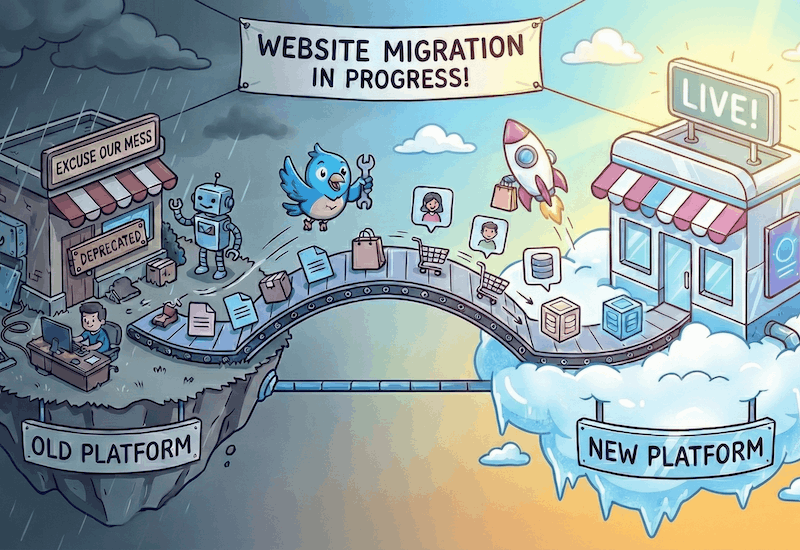 Every so often something comes up in the middle of a project that no one thought of in the planning phase. Enter… scope creep. Creep is like your uninvited cousin busting in on Christmas dinner with the family. Jimmy isn’t really unwanted, per se. There just isn’t a seat for him at the table without shuffling a few things around. And his late arrival is probably going to force everyone to sit around for a bit longer waiting for the meal to be done.
Every so often something comes up in the middle of a project that no one thought of in the planning phase. Enter… scope creep. Creep is like your uninvited cousin busting in on Christmas dinner with the family. Jimmy isn’t really unwanted, per se. There just isn’t a seat for him at the table without shuffling a few things around. And his late arrival is probably going to force everyone to sit around for a bit longer waiting for the meal to be done.
So you see- creep does have an impact. While it would be awesome (and is every project manager’s dream) to have a full set of requirements set in stone at the beginning of every project, that’s just not a reality in many cases. When it comes to website development, the company you hire will likely be open to offering you a contract that is either Fixed Price or Time and Materials based. The structure and culture of your own organization can help you in deciding which to choose when embarking on any project.
Fixed Price: A fixed price contract will include a pretty detailed planning phase, during which a requirements document will be produced that guides the development plan. Pricing is determined based on the expected timeline and scope of work that is indicated in the requirements document. If at any time during the project additional items are requested, you should expect your developer to assess the impact of the request in both financial and scheduling terms and then report back with the findings. Ultimately the choice to proceed with the new plan or continue along the current path is up to you… but you have to accept the bad that comes with the good in either decision.
Good for Your Organization If…Deadlines and budgets are critical. If your organization is good at identifying needs and coming to conclusions that they can live with (at least for launch, there’s always Phase 2!) early on in a project then a fixed price contract can work well. Developers like these types of contracts because they know how long to expect their resources to be tied up, and what sized reward (i.e. your paid invoice) they will see upon project completion.
Time and Materials: A time and materials contract allows for more flexibility in planning the project. Given the fact that the nature of this contract assumes change, the introduction of new functionality into the project plan is a more fluid process than in a fixed price contract. A base timeline (and budget) will be set for completion of work identified at the onset of the project and additional tasks will add to the timeline (and budget) as required.
Good for Your Organization If… There are many stakeholders that have trouble agreeing on the right solution through conceptualization. If your organization has a (relatively) flexible budget and timeline you can probably afford to leave some of the sticky decisions until later in the project when it’s easier to “see” what the impact will be. As long as you’re able to set the expectation that changes to the timeline and budget WILL happen over the course of the project, this can be an effective way of achieving an end goal that everyone is proud of. Developers like these types of contracts because they can focus on providing quality solutions without having to constantly focus on the time and budget constraints defined at the beginning of a project.
In general, a project manager’s goal is to meet their clients’ expectations, which usually includes delivering a completed product on time and on budget. For your website development project (or really any project that you hire outside resources to complete), ensuring that you understand your contract is of keen importance to the company that you’ve hired to complete the work. Odds are that they have delivered a competitive quote (you wouldn’t have hired them otherwise, right?) that assumes that you’ll live up to your end of the deal during the development process. In a fixed price contract, believe me when I say that your developer doesn’t want to come to you asking for more time or money. Most conscientious ones will do everything in their power to deliver exactly what they promised and for the amount they promised to complete it for. Moreover, many developers will build in some percentage of time for the project to account for some scope creep so that when a few little things come up they can just make them work instead of immediately asking for more money and/or time. In a time and materials contract the notion of scope creep is much more palatable… nay, it’s even celebrated to a certain extent. As is true with all things though, moderation is key.
There are a few things you can do as a customer to help control scope creep:
- Assign a dedicated project manager to run your project from DAY 1. Your developer will have a point person running your project from their side. You need an internal person working for you to ensure that your company’s objectives are clearly defined at the start of the project and that they are maintained throughout the course of the project. Your project manager should be someone that has the time, authority, and knowledge to run the project. They don’t need to be an extremely technical person, but they should be willing to learn some basic concepts that will be discussed during the project and meaningfully take information back to your team for discussion.
- Make sure that your entire team is aware of the project timeline and assign deliverables with realistic deadlines to team members. Your developer can help you define some common website-related tasks, but you will probably need to look to your team to identify business processes that may need to be updated based on the new site’s operation.
- Be open to discussion and possible alternate solutions to problems that may require new functionality. Your developer has expertise that they can use to recommend the best path forward with the lowest impact to the project (should that be a direction you desire).
Ultimately…. scope creep happens. Making sure that your team is fully prepared for the impact of changes to your scope of work to your project is the best way to plan for such events.
Not beating up on your developers for having to deliver some difficult news helps, too. ;-)
Bethany Platter is a project manager at Human<>Element in Ann Arbor, Michigan. She works daily with clients and developers on projects ranging from Magento eCommerce implementations to custom software.



